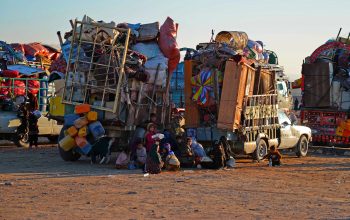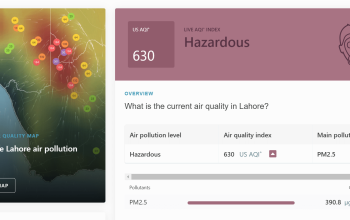When hundreds of thousands of Ukrainian, forced to flee after the Russian invasion, were welcomed by European countries with open arms, the hypocrisy of Western nations was on full display. For the Ukrainians there was support and empathy, hospitality and kindness. New rules were created and new policies were quickly enacted to help the displaced. There was no discussion of a great migration “crisis” as there had been just a few years before. The question for many observers was not that forcibly displaced Ukrainians should not be helped — for there was every reason to help and support them — but it was why were the same countries quick to shut their doors and erect high walls when those seeking safety and security were Syrians. The issue was not why the Ukrainians found willing hosts, but why was there a collective sense of extreme anxiety, fear and anger when the displaced were non-white Arabs?
Similar questions have been asked in the last six months. The United States and many countries in the west were unequivocal in their condemnation of attacks on water and electricity systems when it was done in Ukraine by the Russians, but have stayed silent when Israel did the same in Palestine. That long period of silence continues to this moment.
Academic institutions, often claiming to have an unequivocal commitment to dignity for all, have not done much better either. The institutional structures built around diversity, equity and inclusion in the last several years have largely been quiet when those being dehumanised are Arabs or Palestinians.
The central argument here is not political, but of moral consistency and applying the same rules for everyone. If disconnecting water and electricity is illegal in one place, it should be illegal in another, no matter who does that and where it happens. If racism and dehumanising of individuals is utterly unacceptable in one instance, it should be just as evil in another regardless of national origin, religion, ethnicity or any other discriminatory factor.
Yet, countries, institutions and communities are quick to jump on one bandwagon, write long speeches of support and decry the actions with the loudest voices, and for the other they find excuses, create diversions, and ultimately we are told that it is complicated.
The moral consistency problem, however, is not simply a problem of a particular community or country. There is something for us to reflect here as well. In the last few weeks as campus protests and encampments in the US and other countries have gathered pace, a number of institutions in Pakistan have also had their own protests in solidarity. While solidarity is important, and justice for those who are suffering is an extremely noble cause, we should ask ourselves some basic questions at this moment. For example, isn’t the core issue of the protest here to speak for the vulnerable; for those who are on the receiving end of aggression? Isn’t the purpose of the protest to speak truth to power? And ask those in power to change course? If so, shouldn’t we be consistent in our argument? And wouldn’t moral consistency require us to speak for ethnic communities that are put in concentration camps in countries that are our economic lifeline? Or the refugees within our borders? Or those who have been bombed incessantly in Yemen by neighbouring countries? And what about people within our own communities who are demonised, harassed and viewed with suspicion because of their sect? Shouldn’t the campus solidarity movement ask the powerful to reflect and change course? Or are we equally comfortable in choosing some specific positions and side-stepping others because they are too complicated?
Published in The Express Tribune, May 14th, 2024.
Like Opinion & Editorial on Facebook, follow @ETOpEd on Twitter to receive all updates on all our daily pieces.
Read the full story at the express tribune website.


